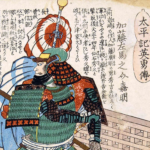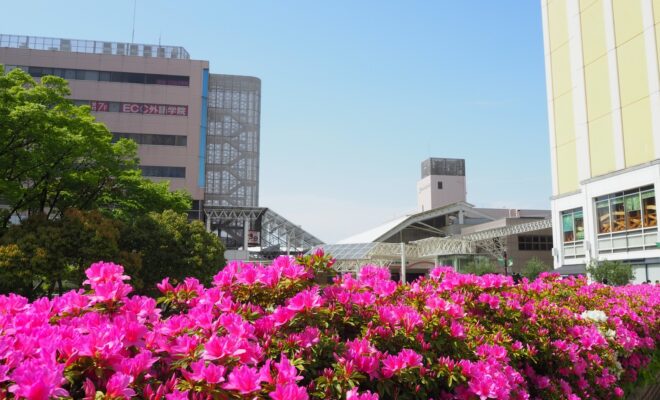If I had to describe the world today in one word, it would be this.
It has been 250 years since the concept of the “invisible hand” of the market economy appeared in Adam Smith’s The Wealth of Nations in 1776. It was the time in Japan when Yoshimune Tokugawa, the 8th shogun, retired and Okitsugu Tanuma became a senior councilor of shogunate. Capitalism itself is commonplace now, but that doesn’t mean it will continue into the future.
The previous 250 years were mercantilism that supported absolute monarchy. In the 250 years before that, commercial cities prospered as trading hubs on the Crusaders’ route and the northern route. The plummeting silver coinage caused by the influx of peasants caused inflation, further accelerating the downfall of lords who depended on rent income from peasants.
Capitalism states that “If equal in ability, whoever gathers capital becomes the winner, either monopolizing the untouched market or exploiting the loser, and owns the property from the accumulated profits privately.” . Since the industrial revolution, capitalism has accelerated, and a large amount of energy is required to operate machines with high productivity, and countries have repeatedly fought wars in search of energy and resources. After World War II, the Western countries and the Eastern countries, which advocated socialism and communism, confronted each other in the Cold War. In the 1990s, when the Western countries won due to the collapse of the Soviet Union, Europe integrated its currencies into the euro, creating a currency block economy. As the area expanded, the United States also made the US dollar the world’s largest circulation currency and accelerated investment in US companies. Since the 2000s, the BRICs have incorporated large populations and relatively low income countries into the world economic bloc. As a result, they tried to secure a labor force with cheap wages and then increase their income levels over time to gain control of the consumer market. It is said that the last resort is only the African continent if you repeat this kind of thing.
Winners and losers in capitalism create economic disparities. Ultimately, however, if the loser does not have a certain amount of income or wealth, there will be no objects to exploit and the winner will not be able to make a profit. In other words, there will be a gradual balance, and ultimately there will be no disparity. No matter where you look in the world, there will be no food. At this stage capitalism ceases to function.
In 1867, at the end of the Edo period, Karl Marx published Capital. In it, he writes, he goes through the exploitation of the workers by “the capitalists and the widening inequality, and finally into socialism“. The reasoning is exactly the same as mentioned above. It can be said that we are approaching that stage of socialism. The Great Reset was the theme of the 2020 World Economic Forum (WEF), and “stakeholder capitalism” was advocated. It means that “we should carry out activities that coexist with society in consideration of the interests of stakeholders such as company employees, business partners, consumers and local communities.” It can be said that this is socialism that retains capitalist elements, or capitalism that incorporates socialist elements.
It can be said that the negative image of socialism, far from its original meaning, is due to China and Russia (Soviet Union). These countries are mercantilistic countries, not socialist in nature. Mercantilism, an economic policy designed to maximize a nation’s exports and minimize its imports, was the concept of primitive industrial Europe in the 16th to 18th centuries. In order to maintain the standing army and bureaucratic system that supported the absolute monarchy, it was necessary to increase national wealth, and intervention policies such as the accumulation of foreign currency reserves through the trade balance and tariff barriers were adopted for the economy. And it caused colonial expansion, exploitation from colonies, and colonial disputes with other countries. Simply by replacing the expression “absolute monarchy” with the words “Chinese Communist Party” and “President Putin,” it fits perfectly with the current state of the two countries. In other words, these two countries are mercantilists, far from the socialism advocated by Marx. However, I think that the fact that the word “socialism” itself had a bad impression led to the use of the new word “stakeholder capitalism”.
In the stakeholder capitalism of the Great Reset, it can be said that it is the ultimate ideal society aiming for zero GDP growth rate. If all mankind can have enough income and consumption to live comfortably, then only profits corresponding to that will be enough, and as long as the population does not change, profit growth will not be necessary. In the first place, there is also the idea that socialism does not require a state. We need to think about what a nation is.
The concept of the state has power and “hegemonic state” was born from “Leviathan'' written in 1651 by the British philosopher Thomas Hobbes. Hobbes said,“If the object desired by people cannot be divided into multiple objects, and the will of these multiple people cannot be achieved, they will be in a hostile relationship“. The theory is developed on the premise that it chooses to do or submit.. Therefore, it is the law of nature that people make a social contract that belongs to the community of the nation, and that the nation (commonwealth) seeks power based on the identity of this contract.
The time of Thomas Hobbes is the early Edo period in Japan. The Sengoku period had already ended, and the Tokugawa shogunate had established a stable world, and the townspeople’s culture had begun to flourish. However, in Europe, from the era of the Portuguese and Spanish monarchies, the concept of the British state and mercantilism were linked, and the era of colonization and aggressive wars began. By the way, it can be said not only to the nation but also to the religion called Christianity. Most of the world’s religions are stable within their ethnic groups and regions, and do not spread or coerce their propagation to other ethnic groups.
The mere fact that everything is based on aggression and looting is quite a far cry from the spirit of sharing and mutual assistance that the Japanese have inherited since the Jomon period. For example, the media of each country reported with amazement at the sight of victims of the Great East Japan Earthquake neatly lining up for food rations, respecting each other and waiting their turn. However, we Japanese are naturally able to act like that, and we think it is common sense rather than special. However, from the point of view of foreigners like Hobbes, who presupposes aggression and looting, there is a reason why Japanese people are surprised that the Japanese are a special people in the world.
If capitalism reaches the end of its lifespan and shifts to the original socialist era, the country, national interests, and even the private ownership of property, let alone the elimination of disparities, may become meaningless. It may be an unimaginable world, but the Japanese have already experienced it more than 16,000 years ago, during the Jomon period, and sustained it for 10,000 years. This Japanese experience may be the key.













